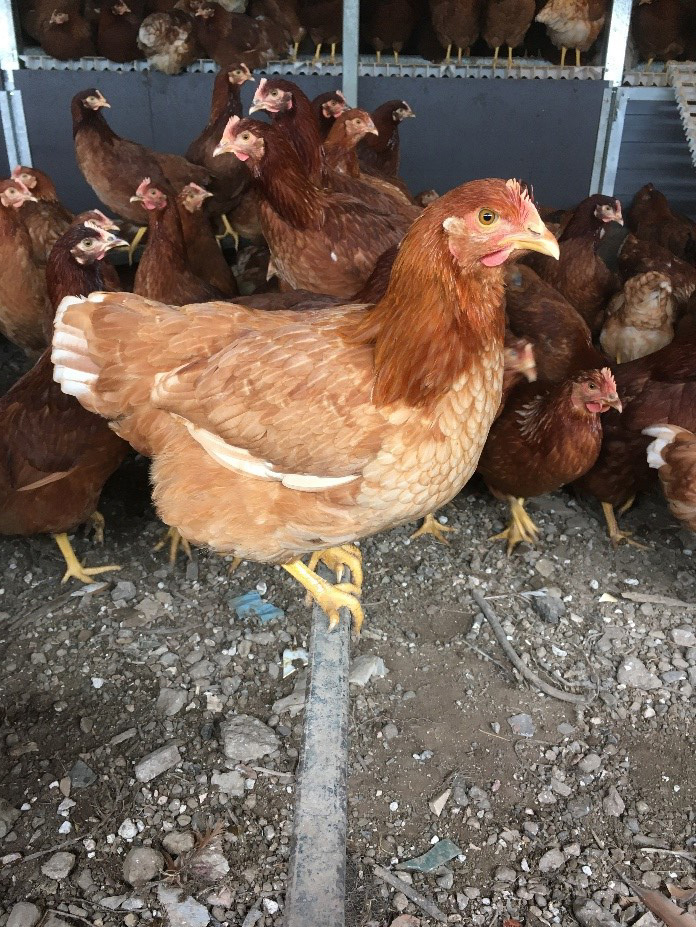Factors affecting bird distribution in loose housed laying systems
Kate Norman has been awarded a grant by to study factors affecting bird distribution in loose housed laying systems.

The UK’s large food retailers will stop selling cage-eggs on the shelves by 2025. To meet the demand the egg industry are likely to transition from colony cages to cage-free multi-tier systems. With this change to large loose-housed systems there are new challenges in management strategies to ensure the best environment for good welfare. Although large loose-housed commercial systems are designed to provide sufficient resource throughout the house to ensure even spacing and maintain a safe local stocking rate, we still observe strongly uneven bird distribution.
High local stocking rates are associated with welfare concerns and will adversely affect birds’ ability to use resources to fulfil their behavioural needs to nest, forage, roost and dustbathe. A possible impact on the location preferences, and hence distribution of birds, in commercial systems is the thermal environment, but no prior research has examined this. This project therefore aims to examine the association between environmental temperature in commercial systems, bird distribution and indicators of thermal comfort.
Understanding factors that affect bird distribution will inform management of egg laying hens to avoid high local stocking densities within cage-free commercial systems to promote better welfare.
You may also be interested in:
-
New research from the RVC predicts the future life expectancy for companion cats
New research from the ¯áûéꪤüýò¿ÌôèôÜä° (RVC), in collaboration with researchers from the ãÎ

